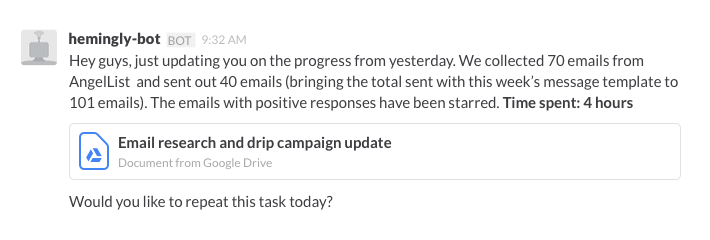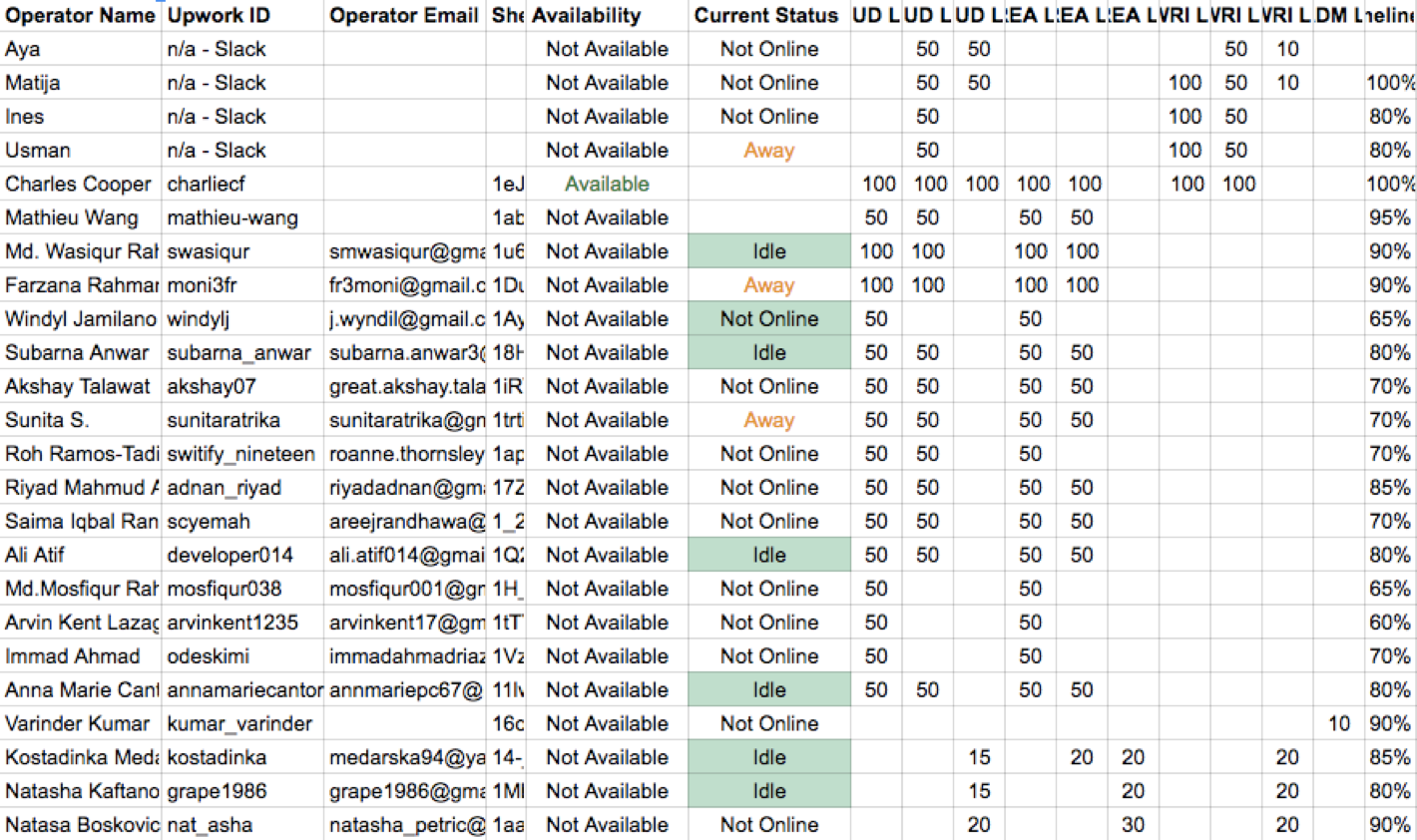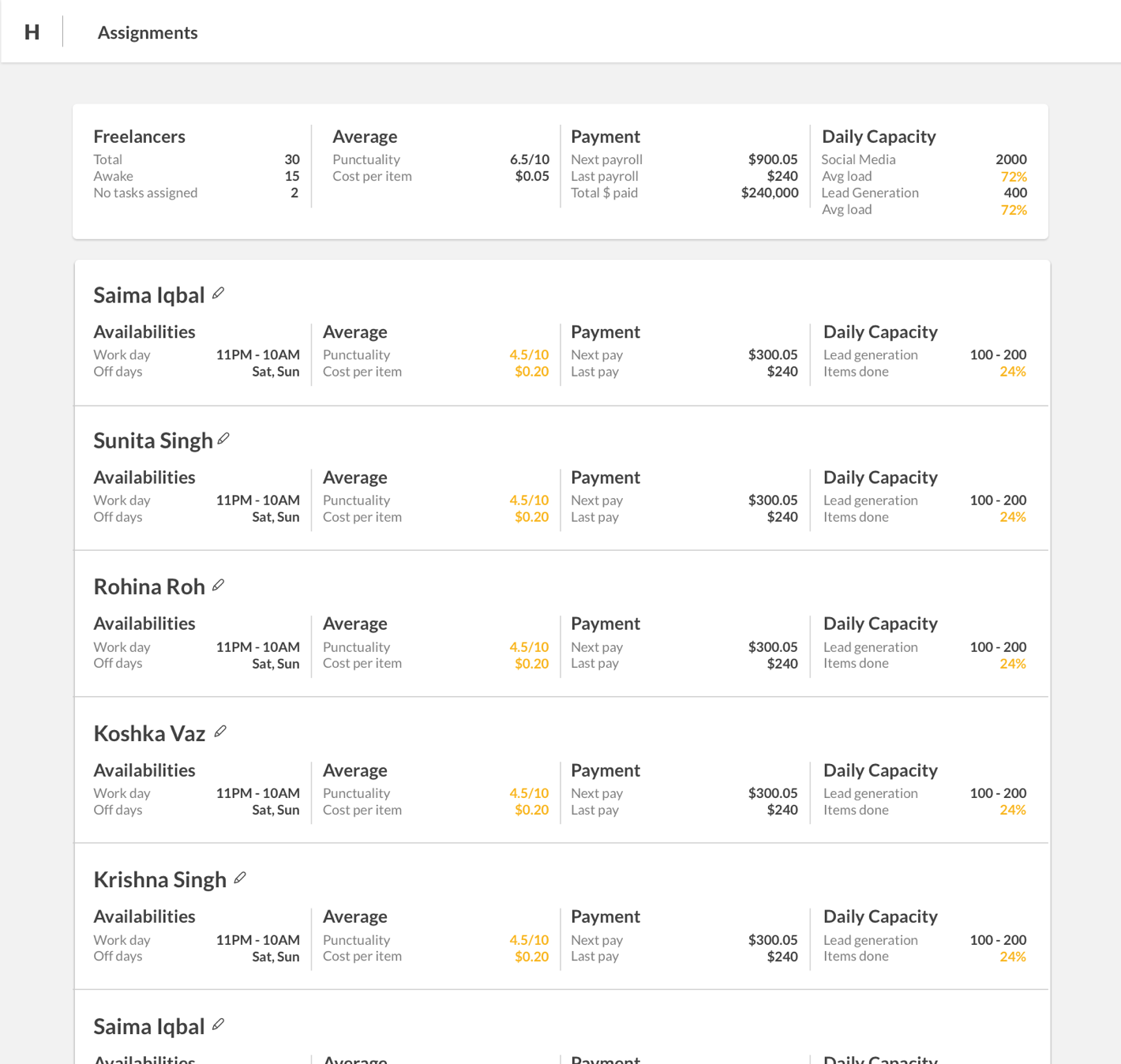Everyone's private army of interns
Hemingly was first started as an effort to help indie authors better manage their marketing. Although the idea never took off, we learned how to leverage Amazon Mechanical Turk to summon an on-demand force of office workers. In fact, using MTurk made us so productive that we wanted to give the power of MTurk to everyone, but minus the learning curve. To do this, we had to overcome 2 main challenges:
- Making task delegation simple : the main barrier to more people using on demand workforce services like MTurk is the high learning curve of creating your first task. Getting the task scope, difficulty, timeline, pricing and instructions right were so difficult that most new users gave up.
- Building a scalable task dispatch system : on our end, the challenge was to build a system that can receive and dispatch an ever more diverse set of tasks to a culturally diverse workforce.
Simplying task delegation with a chat bot
The most natural way to delegate tasks is via speech. In day to day life, we ask favors, give tasks to employees, assign to-do's to colleagues, etc. all by talking. We therefore designed the task delegation interface entirely as chatbot in Slack. Here are some interaction examples:


Making the app extensible with spreadsheets
As the tasks we received grew in number and complexity, it became clear that we would need to build a dispatching software. And so we set out a few design principles:
- Quick to use for managers: because wouldn't hire new managers in the next 6 months, it was more important to be fast than learnable.
- Easily extensible for managers: because new types of tasks often required new interfaces
- Easy to learn for operators: we expected to have high operator turnover so the app needed to be easily learnable for new workers.
- Sensitive to operators’ culture: the app needed to account for the software familiarity and workplace customs of our global workforce.
To meet all these principles, we built more than half the app on Google Spreadsheets. The platform was immediately extensive thanks to built-in fomulas and Google Apps Script. It also solved many of our localization problems since every worker, no matter their background, was familiar with spreadsheets. Finally, we could also quickly build custom UIs for any edge cases that came up, all without much coding.


Outcome
In 6 months, we built a product that helped 15 companies delegated more than 600 hours of work on our platform. With this traction, we were given interviews by the top 2 accelerators in the world: YCombinator and 500 Startups, with a term sheet for $100,000 of VC investment from the latter.

